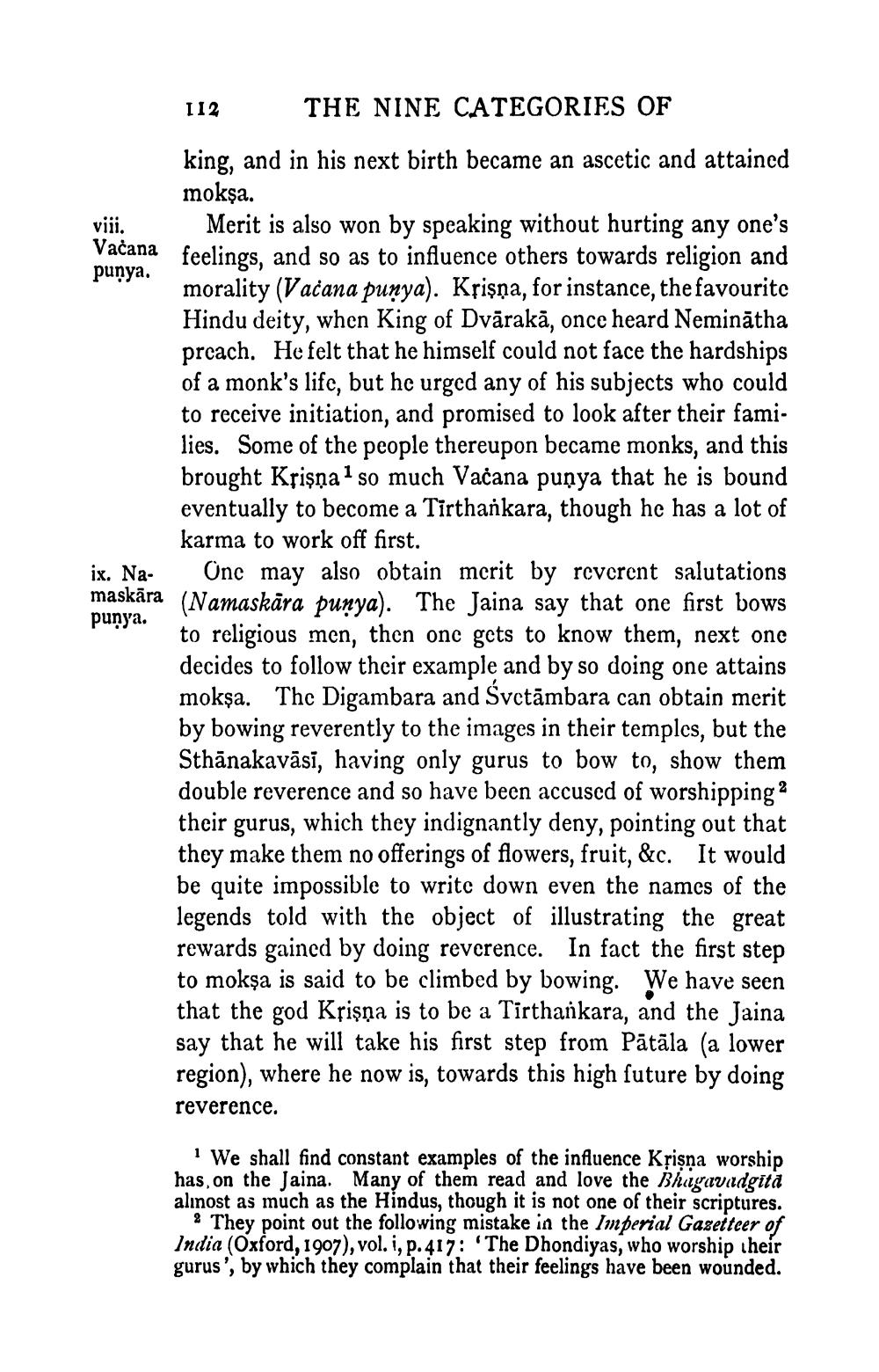________________
112 THE NINE CATEGORIES OF king, and in his next birth became an ascetic and attained
mokşa. viii. Merit is also won by speaking without hurting any one's Vacana feelings, and so as to influence others towards religion and punya,
morality (Vacana punya). Krişņa, for instance, the favourite Hindu deity, when King of Dvārakā, once heard Neminātha preach. He felt that he himself could not face the hardships of a monk's life, but he urged any of his subjects who could to receive initiation, and promised to look after their families. Some of the people thereupon became monks, and this brought Krişnal so much Vačana punya that he is bound eventually to become a Tīrthankara, though he has a lot of
karma to work off first. ix. Na Onc may also obtain mcrit by reverent salutations maskāra (Namaskāra punya). The Jaina say that one first bows punya.
to religious men, then one gets to know them, next one decides to follow their example and by so doing one attains mokşa. Thc Digambara and Svetāmbara can obtain merit by bowing reverently to the images in their temples, but the Sthānakavāsi, having only gurus to bow to, show them double reverence and so have been accused of worshipping ? their gurus, which they indignantly deny, pointing out that they make them no offerings of flowers, fruit, &c. It would be quite impossible to write down even the names of the legends told with the object of illustrating the great rewards gained by doing reverence. In fact the first step to mokşa is said to be climbed by bowing. We have seen that the god Kţişņa is to be a Tirthankara, and the Jaina say that he will take his first step from Pātāla (a lower region), where he now is, towards this high future by doing reverence.
1 We shall find constant examples of the influence Krisna worship has, on the Jaina. Many of them read and love the Bhagavadgita alınost as much as the Hindus, though it is not one of their scriptures.
* They point out the following mistake in the Imperial Gazetteer of India (Oxford, 1907), vol. I, p.417: 'The Dhondiyas, who worship their gurus', by which they complain that their feelings have been wounded.




